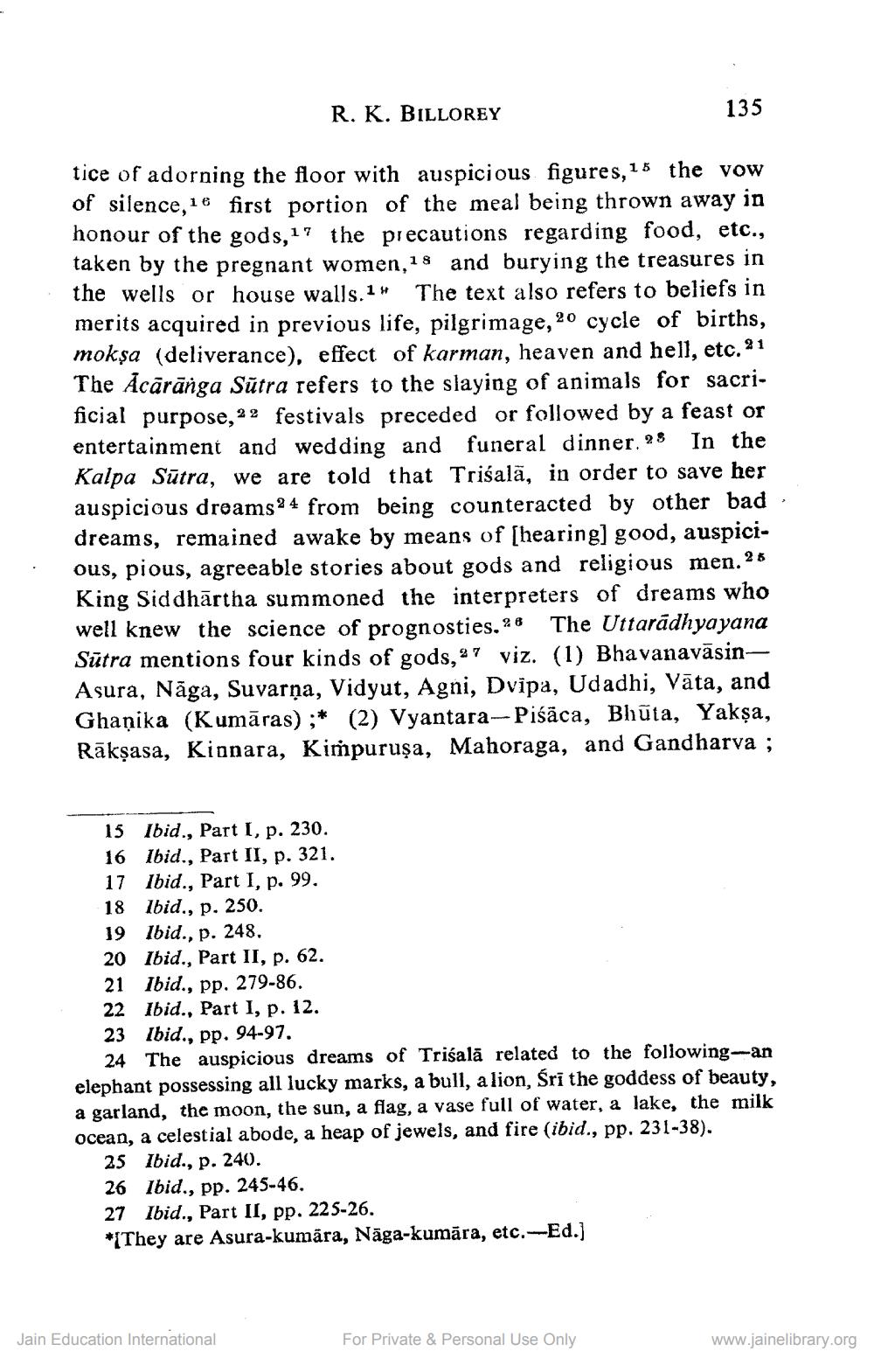________________
R. K. BILLOREY
135
tice of adorning the floor with auspicious figures, 16 the vow of silence, 18 first portion of the meal being thrown away in honour of the gods, 17 the precautions regarding food, etc., taken by the pregnant women, 18 and burying the treasures in the wells or house walls. 1 The text also refers to beliefs in merits acquired in previous life, pilgrimage, 20 cycle of births, mokṣa (deliverance), effect of karman, heaven and hell, etc. 21 The Acārānga Sūtra refers to the slaying of animals for sacrificial purpose, 22 festivals preceded or followed by a feast or entertainment and wedding and funeral dinner. 28 In the Kalpa Sūtra, we are told that Trisalā, in order to save her auspicious dreams24 from being counteracted by other bad. dreams, remained awake by means of (hearing] good, auspicious, pious, agreeable stories about gods and religious men.26 King Siddhārtha summoned the interpreters of dreams who well knew the science of prognosties. 28 The Uttarādhyayana Sūtra mentions four kinds of gods, 27 viz. (1) BhavanavāsinAsura, Nāga, Suvarņa, Vidyut, Agni, Dvipa, Udadhi, Vāta, and Ghanika (Kumāras) ;* (2) Vyantara- Piśāca, Bhūta, Yakşa, Rākşasa, Kionara, Kimpuruşa, Mahoraga, and Gandharva ;
15 Ibid., Part I, p. 230. 16 Ibid., Part II, p. 321. 17 Ibid., Part I, p. 99. 18 Ibid., p. 250. 19 Ibid., p. 248. 20 Ibid., Part II, p. 62. 21 Ibid., pp. 279-86. 22 Ibid., Part I, p. 12. 23 Ibid., pp. 94-97.
24 The auspicious dreams of Trisalā related to the following-an elephant possessing all lucky marks, a bull, a lion, Sri the goddess of beauty, a garland, the moon, the sun, a flag, a vase full of water, a lake, the milk ocean, a celestial abode, a heap of jewels, and fire (ibid., pp. 231-38).
25 Ibid., p. 240. 26 Ibid., pp. 245-46. 27 Ibid., Part II, pp. 225-26. *[They are Asura-kumāra, Nāga-kumāra, etc.-Ed.]
Jain Education International
For Private & Personal Use Only
www.jainelibrary.org




